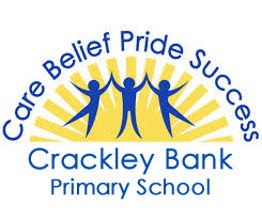Year 3 Curriculum Overview
Downloads
Spring Term
English
In English, we are going to be writing to entertain and to explain. We will be writing stories linked to our class text one of which will have an historical setting. Moving on to write instructions and a newspaper report. We will be developing our skills when answering questions during comprehension lessons. We will also continue to focus on handwriting, spelling, punctuation and grammar.
Maths
In Mathematics we will be developing our skills when answering multiplication and division questions. We will be solving measurement problems, this will include: money and calculating the length and perimeter of a shape. We will also be using all four operations to answer questions during the unit on statistics. Finally, we will develop our skills when solving fraction problems.
Science
In Science, we will be learning about plants. We will find out about what functions the roots, stem, leaves and flowers have. For example: the leaves collect sunlight and make food by photosynthesis and the flowers produce seeds to produce more of the same plant. We will move onto the unit all about animals including humans – skeletons & muscles. We will learn that humans and some animals have skeletons and muscles to support them. Vertebrates (animals with a backbone) have an endoskeleton. Invertebrates (animals without a backbone) have either an exoskeleton or a hydrostatic skeleton. We will move on to find out about muscles and how they work.
Computing
In Computing, we will find out about sequencing sounds and creating sequences. We will use programming language to make and branch databases. Moving on to build and use branching databases to group objects using yes/no questions.
Geography
In Geography, we will be naming and locating countries in Europe. These will include the following: the UK, France, Spain, Germany, Italy, Russia, Poland, Romania, Greece and Hungary.
History
In History, we will be learning about The Stone Age through to The Iron Age. We will discover that The Stone Age, Bronze Age and Iron Age lasted from 10,000BC – 43AD in Britain. This period was called ‘Pre-History’. We will find out how and where people lived during that time in History.
PSHE
In PSHE, we will be learning about what keeps us safe at home and at school. For example, we can protect ourselves by wearing a seatbelt in the car and using reflective wear on bikes. We will be discussing how to look after our bodies; ensuring we have good personal hygiene. We will also focus on how to stay safe with medicines and household products. We will move on to think about family life.
Music
In Music, we will continue to develop our skills when playing the recorder. We will learn about pitch. Listen to traditional music, sing, read and compose music. We will develop our understanding of beat, metre and rhythm. Combine melodic and rhythmic patterns.
D&T
In Design and Technology, we will be creating shell structures from nets. We will learn that a net is what a 3D shape would look like when it has been flattened out.
Art
In Art, we will be painting, using light and dark within painting and begin to explore complimentary colours. We will develop increasing control the types of marks made and experiment with different effects and textures inc. blocking in colour, washes, thickened paint creating textural effects.
Spanish
In Spanish we will be learning the Spanish vocabulary for greetings and numbers.
We will be saying hello and goodbye, asking and saying our name, asking and saying how you are and numbers 1 – 10.
Physical Education:
In Physical Education, we will be taking part in invasion and team games. We will be learning the rules for tag rugby, and hockey. We will be developing our striking and fielding skills when playing football, netball and cricket.
RE
In Religious Education, we will compare the use of symbols used in worship by different faiths and communities Moving on to Investigate some features of key religious festivals and celebrations and identify similarities and differences.

